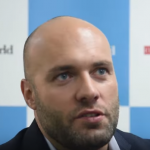The ongoing global health crisis in the form of the spread of the Novel Coronavirus disease has generated a renewed scrutiny of the global public health systems, with calls for strengthening international cooperation and enhanced data sharing. In this setting, the World Health Organization (WHO), the chief specialized agency that directs and coordinates international health within the United Nations system, finds itself in the midst of a growing controversy, where its ability to efficiently and effectively function in a shifting global governance context has come under severe attack. US President Donald Trump has been scathingly vocal in his accusations of the WHO’s complicity with China in downplaying the severity of Covid-19’s spread and transmission that led to delayed responses and losing of crucial reaction time.
The outbreak was declared a Public Health Emergency of International Concern (PHEIC) by the WHO on January 30, 2020 and finally characterized as a pandemic on March 11. It has been alleged that despite warnings from Taiwanese doctors, the WHO continued to accept and echo the information coming from China. Japan’s Deputy Prime Minister Taro Aso went on to call for a renaming of the WHO as the ‘Chinese Health Organization’. Incidentally, Japan is one of the biggest fund contributors among WHO members. India too has been expressing its concern on the workings of the WHO and asking for reforms of the Organization for an effective transition into post Covid -19 global order. Calling for a recasting of the WHO, Indian Prime Minister Narendra Modi, during the G-20 virtual summit advocated for reforming and strengthening the WHO to enable it to adapt to new challenges.
However,it must be noted that this is not the first time that the WHO is being shrouded in controversy and demands for its reforms are being raised. The WHO elicited tremendous criticism for the inadequacy of its response during the catastrophic Ebola outbreak in West Africa (2013-2016). It is alleged that the WHO was delayed and slow in its response to the outbreak and displayed poor operational skills. In fact, the report of its Ebola Interim Assessment Panel (2015) urged the WHO to “develop an organizational culture that accepts its role in emergency preparedness and response” and to “undergo significant transformation in order to better perform”.
While the WHO’s noteworthy contributions to global public health including eradication of Smallpox and setting standards in medical care and medical ethics cannot be undermined, it is contended that the Organization is increasingly being unable to provide a strong leadership on global health matters. The Constitution of the WHO came into force on April 7, 1948 (a day that has come to be celebrated as World Health Day) and it was the first specialized agency of the UN to which every member subscribed. Yet, it has been accorded with little powerwith no ability to bind or sanction its members (unlike other international bodies like the World Trade Organization). The Organization lacks technical capacities and capabilities and suffers from precariously inadequate access to financial resources. Overwhelming majority of the WHO’s budget is dictated by donors and their priorities thus leaving the Organization limited control over its finances.
Want to publish your own articles on DistilINFO Publications?
Send us an email, we will get in touch with you.
Source: Sentinel Assam







